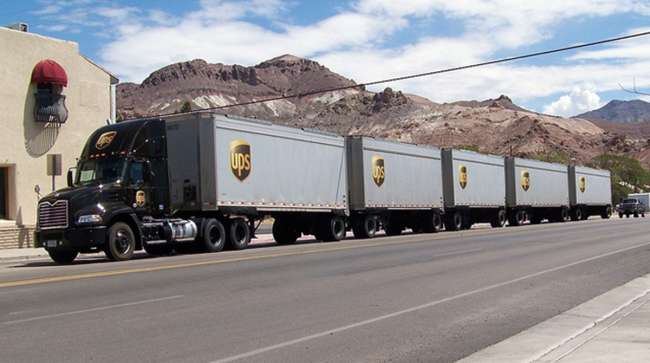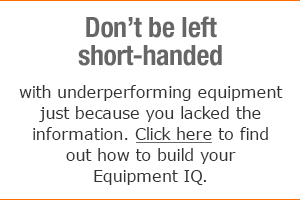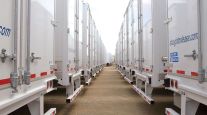Senior Reporter
May Trailer Orders Boom Amid Jammed Up Supply Chain

ACT Research Co. reported trailer orders in May climbed 30% to 23,300, based on its preliminary estimate. Trailer makers called the ongoing surge unprecedented.
In May 2017, the net total was 18,026.
“Fleet investment continues at a torrid pace. Net trailer orders were up year-over-year for the 18th straight month in May,” said Frank Maly, ACT’s director of commercial vehicle transportation analysis and research.
He cited the ongoing factors of solid freight rates and tight capacity, aided by beneficial tax changes.
Year-to-date, more than 151,000 net orders have been booked, up more than 26% versus last year, according to ACT.
Research company FTR pegged the preliminary orders at 21,200.
“There is a chance that May could be the lowest month this year if fleets start ordering for 2019 early. Some trailer makers are booked solid for 2018 and are soliciting orders for next year,” said Don Ake, FTR’s vice president of commercial vehicles.

Ake
Ake also painted a picture of a jammed up and stalled supply chain.
“The capacity crunch continues and there are reports of trailer shortages by shippers. The supply chain is getting plugged up and some full trailers are sitting at warehouses for days, waiting to be unloaded. These trailers are in effect pulled out of service in these regions causing temporary availability issues. Shipments are being delayed in many markets and more trailers are needed to keep the freight moving,” Ake said.
Both companies will release net totals for May when the final data is available.
Trailer makers pointed out the unusually long run of high demand and the consequent volumes did not let up in May.
“It certainly has been and continues to be a great run,” said Charles Willmott, chief sales officer at The Strick Group.
“It has been unprecedented,” said David Giesen, vice president of sales at Stoughton Trailers.
Glenn Harney, chief sales officer at Hyundai Translead, agreed. “We are taking unprecedented orders for 2019, but they all have to include a clause that outlines when and how the price will be fixed.”
Stoughton also does not have firm pricing for components or materials going into 2019, and so “we are talking to customers about their needs going into next year,” Giesen said.
Willmott underscored the effect on trailer pricing of new tariffs on aluminum and steel.
“When the idea of tariffs was first floated three or four months ago, we immediately entered a spat of material and component price increases the likes of which we have not seen for over a decade. In addition to many immediate price increases, no suppliers were willing to forecast pricing for later in the year much less 2019. In the last month, this has settled down a little and most trailer makers have been able to lock in major material and component pricing for the remainder of 2018,” he said.
The recent implementation of the 25% steel and 10% aluminum tariffs on Canada and our closet European allies, however, has set the industry back into the “universe of the unknown” for 2019, Willmott added.
Meanwhile, the three trailer makers agreed the economy shows no signs of slowing down.
At some point customers will have enough trailers and their age of equipment will be where they want it to be, Giesen said. “I do not know when that point will be.”
Barring any “unforeseen jolt” there seems to be no reason it cannot continue as it is today in 2019, Harney said.
The typical demand cycle in the trailer industry is six years and the current cycle is approaching its eighth year, lifting the prospects for a correction in 2019, Willmott said.
“To me it is not a question of if there will be a downturn, but rather when and how deep,” he said.
And if the trailer industry can’t match equipment demand, will that cause the overall economy to stumble?
Harney doubts the trailer industry could have that big of an impact.
“It certainly could impact carriers who are unable to grow their fleet or update aging trailer fleets,” he added.
Willmott said he doesn’t believe that an underperformance in the annual trailer build will pull down the economy, calling the trailer build an early economic indicator, not an influencer.
“Historically, oil prices have been an influencer for sure and new trailer demand has shown the earliest signs of sensitivity to the price of oil,” Willmott said.
Bloomberg News reported June 12 that oil has retreated from the highs of May after Saudi Arabia and Russia signaled they may increase output later this year to counter supply losses from other producers, while President Donald Trump also is pressuring them to temper crude prices.





